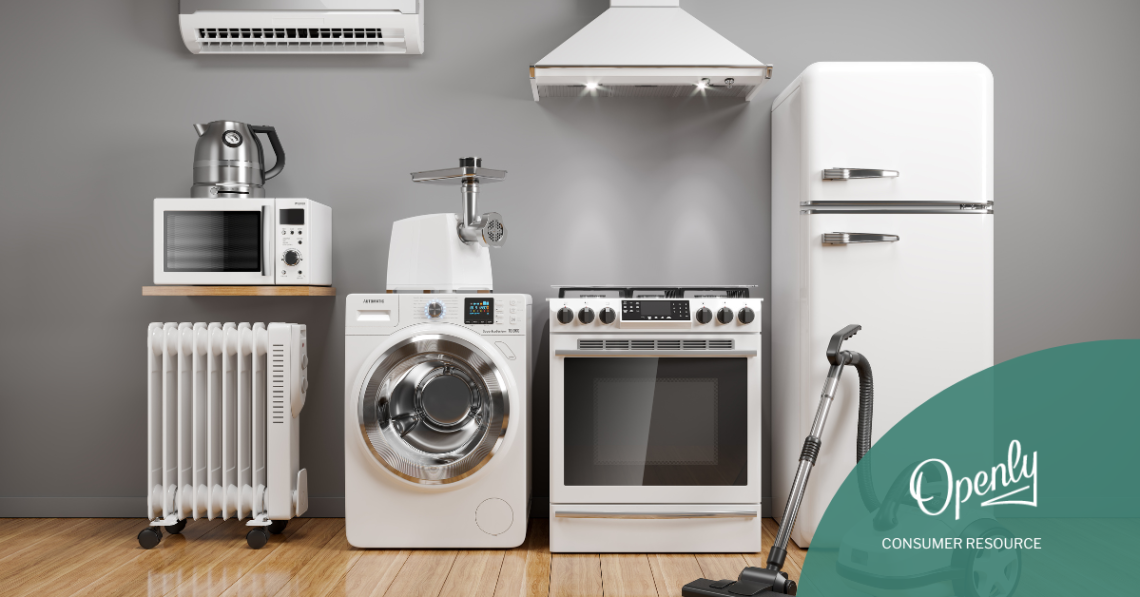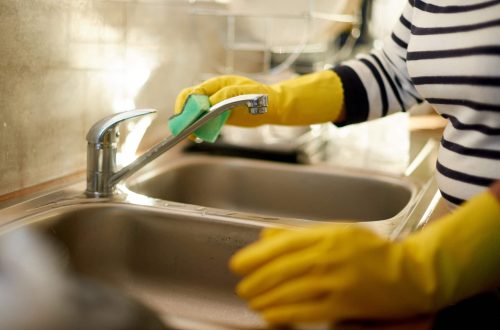Homeownership is a fantastic journey, but it comes with its share of worries. One common concern for homeowners is, “What happens if my kitchen appliances break down?” Ovens, refrigerators, dishwashers – they’re essential to our daily lives, and replacing them can be a significant expense. So, does your home insurance swoop in to save the day when your trusty fridge gives up the ghost? Let’s dive into the specifics and explore whether your policy offers protection for your beloved kitchen companions.
Understanding Home Insurance and Kitchen Appliance Coverage
Home insurance, also known as homeowner’s insurance, is designed to protect your home and its contents from specific perils. But what exactly does that mean for your kitchen appliances? Generally, home insurance covers appliances if they are damaged by a covered peril. But what qualifies as a covered peril? Let’s break it down.
What are Covered Perils for Kitchen Appliances?
Covered perils are events specifically listed in your insurance policy that the insurance company will pay for if they cause damage. Common covered perils include:
- Fire: If a fire damages your oven, stove, or refrigerator, your home insurance should cover the cost of repair or replacement.
- Lightning: A lightning strike can surge through your electrical system and fry your appliances.
- Vandalism: If someone intentionally damages your appliances, your insurance might cover it.
- Windstorm: In some cases, windstorms can cause power surges that damage appliances.
- Water Damage: This is a tricky one, but if a burst pipe damages your dishwasher, you might be covered.
However, it’s crucial to remember that policies vary. Always read your policy carefully to understand exactly what is covered and what is not.
Important Tip: Keep a detailed inventory of your appliances, including their make, model, and purchase date. This will be invaluable if you ever need to file a claim.
When Home Insurance Won’t Cover Your Kitchen Appliances
While home insurance can be a lifesaver, it’s not a catch-all for every appliance issue. There are several situations where your claim might be denied. So, when doesn’t home insurance cover kitchen appliances?
Wear and Tear and Mechanical Breakdown
This is a big one. Home insurance typically doesn’t cover appliance failures due to normal wear and tear or mechanical breakdown. If your refrigerator simply stops working because it’s old and tired, your insurance won’t pay for a replacement. Think of it like this: insurance is for sudden, unexpected events, not the inevitable decline of your appliances.
Lack of Maintenance
Neglecting routine maintenance can also void your coverage. If your dishwasher breaks down because you haven’t cleaned the filter in years, your insurance company might deny your claim. They expect you to take reasonable care of your appliances.
Power Surges (Sometimes)
While lightning strikes are often covered, damage from smaller, everyday power surges might not be. It depends on your policy and the specific circumstances.
Interesting Fact: Consider purchasing a surge protector to safeguard your appliances from power surges. It’s a relatively inexpensive investment that can save you a lot of money in the long run!
Specific Exclusions in Your Policy
Always, always read the fine print! Your policy might have specific exclusions related to appliances. For example, some policies might exclude coverage for appliances over a certain age.
Exploring Appliance Warranties and Home Warranty Plans
If home insurance doesn’t always cover appliance breakdowns, what are your other options? Thankfully, there are a couple of alternatives to consider.
Manufacturer’s Warranties
Many new appliances come with a manufacturer’s warranty, which typically covers defects in materials or workmanship for a specific period (usually one year). This is your first line of defense against unexpected problems with a new appliance.
Extended Warranties
You can often purchase an extended warranty when you buy an appliance. These warranties extend the coverage beyond the manufacturer’s warranty period. However, they can be expensive, so weigh the cost against the potential benefits.
Home Warranty Plans
Home warranty plans are service contracts that cover the repair or replacement of appliances and home systems (like plumbing and electrical) that break down due to normal wear and tear. Unlike home insurance, home warranties are designed to cover these types of issues. They usually involve a monthly or annual fee and a service call fee for each repair.
- Pros: Covers wear and tear, can provide peace of mind.
- Cons: Can be expensive, service call fees apply, coverage limitations exist.
Frequently Asked Questions About Home Insurance and Kitchen Appliances
- Q: Will my home insurance cover my refrigerator if it just stops working?
- A: Probably not. Home insurance typically doesn’t cover breakdowns due to normal wear and tear.
- Q: What if a power surge from a storm damages my appliances?
- A: If the power surge was caused by a covered peril like lightning, your insurance might cover the damage. Check your policy.
- Q: Does my home insurance cover water damage to my dishwasher?
- A: It depends on the source of the water damage. If it’s from a burst pipe, you might be covered. If it’s from a slow leak you ignored, probably not.
- Q: Should I get a home warranty plan?
- A: It depends on your individual circumstances and risk tolerance. Consider the cost, coverage limitations, and potential benefits before making a decision.
So, does home insurance cover kitchen appliances? The answer, as you’ve seen, is “it depends.” It depends on the peril, the cause of the damage, and the specifics of your policy. Always read your policy carefully and consider your other options, such as warranties and home warranty plans. Protecting your kitchen appliances is a smart move, and understanding your insurance coverage is the first step. Don’t wait until disaster strikes to figure it out. Take the time to review your policy today and ensure you have the right protection in place. You’ll be glad you did!






